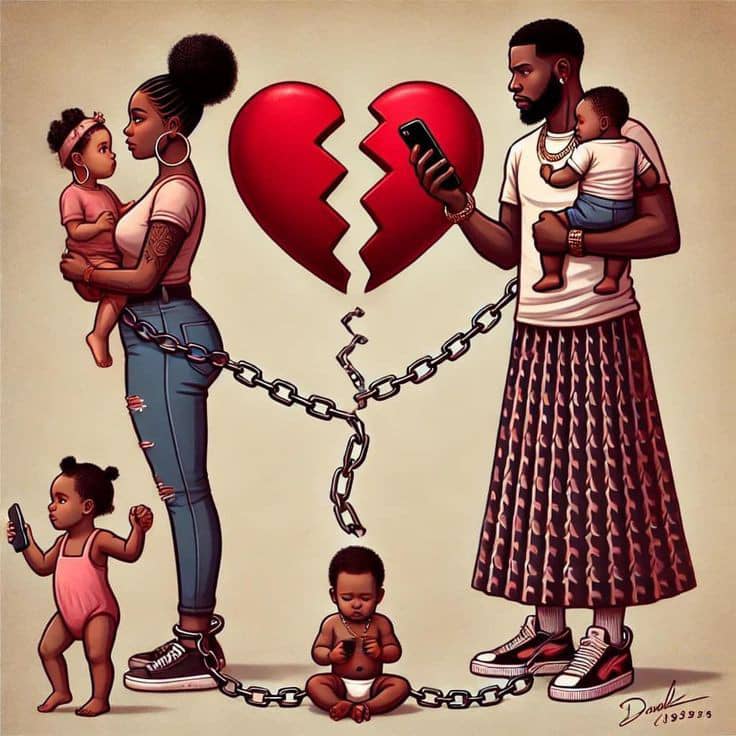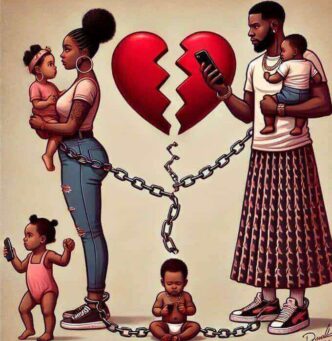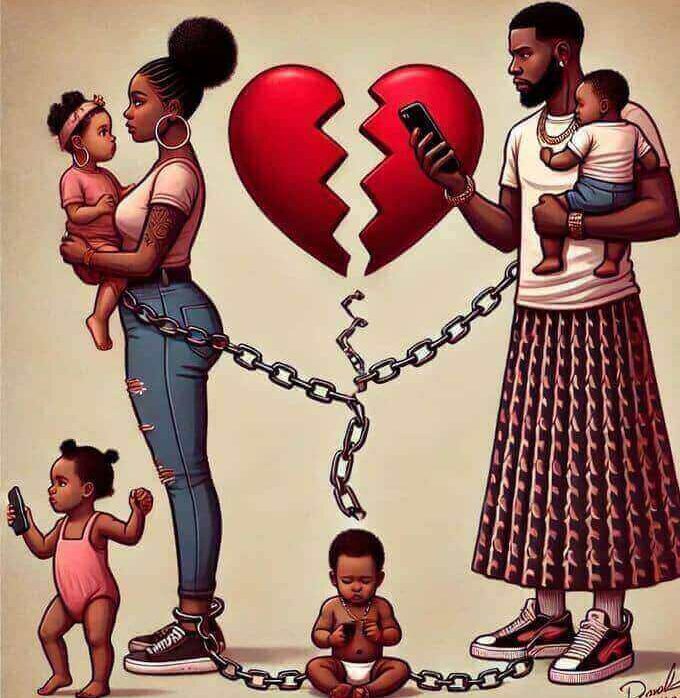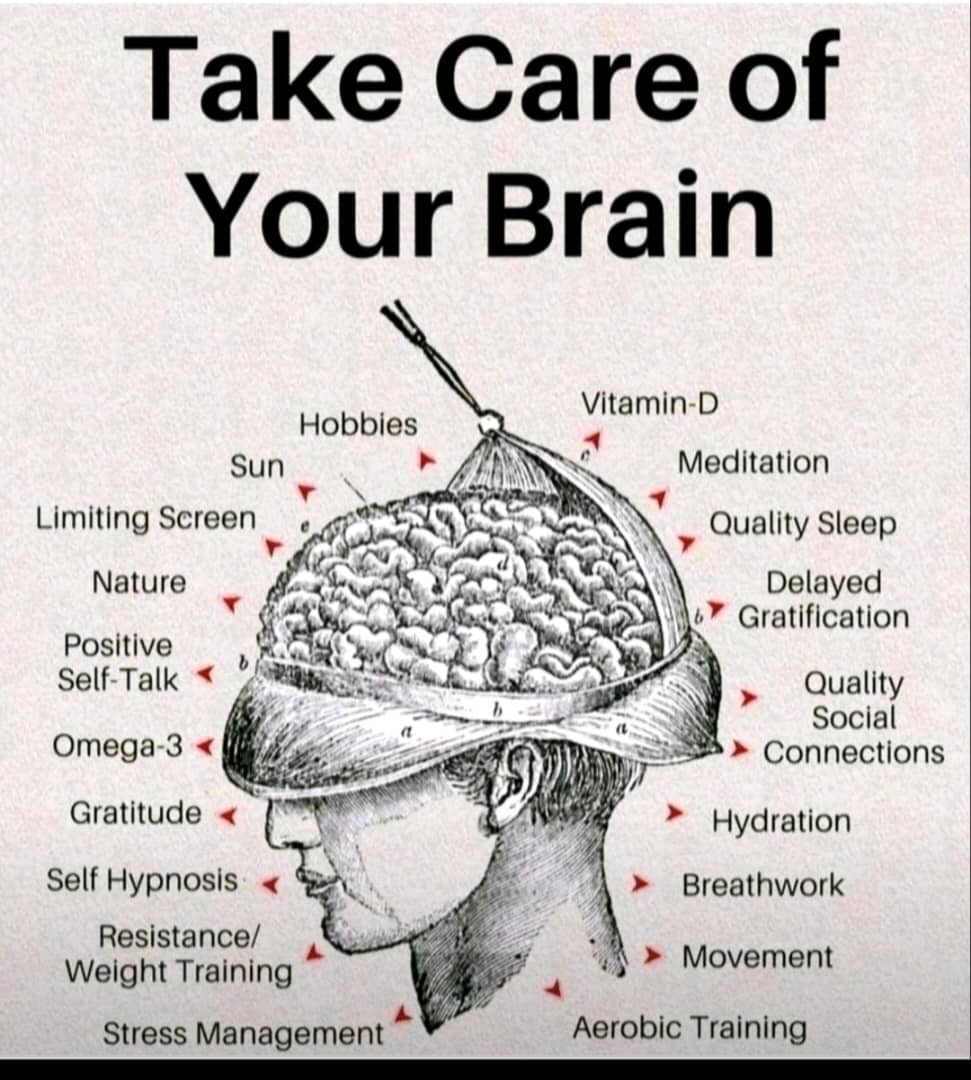Parental separation is a life-altering event that significantly impacts a child’s emotional and psychological development.
While its effects are often examined in the context of academic performance and behavioral patterns, its influence on future relationships and marriage is just as profound.
Research has shown that children of divorced or separated parents may struggle with trust, emotional bonding, and commitment in their adult relationships.
This article delves into the long-term effects of parental separation on children’s romantic lives, attitudes toward marriage, and their ability to sustain healthy, meaningful relationships.
The Science Behind Emotional Bonding and Trust Issues

A strong parent-child relationship plays a crucial role in a child’s emotional stability. A key factor in forming emotional bonds is oxytocin, often referred to as the “love hormone.” This hormone is responsible for attachment, trust, and bonding between individuals.
Studies have found that children from separated families tend to have lower levels of oxytocin, making it more challenging for them to establish deep emotional connections as they grow older.
When a child experiences the separation of their parents, it disrupts their perception of secure attachments. This often results in trust issues, leading to difficulties in maintaining stable romantic relationships. Many children from divorced families develop a fear of abandonment, which may cause them to either avoid deep emotional involvement or become overly dependent on their partners in adulthood.
A Shift in Attitudes Towards Marriage and Divorce

Children raised in homes affected by divorce or separation often develop a different perspective on marriage compared to those from intact families. Many studies indicate that these children tend to have less faith in the institution of marriage and are more likely to view divorce as an inevitable outcome.
A research study by Amato (1988) found that individuals from separated families were less likely to consider marriage for themselves. They were also more inclined to believe that if they did get married, divorce would be a likely possibility. This perception stems from witnessing their own parents’ failed relationships, leading them to question the stability of long-term commitments.
Moreover, children of divorced parents are more likely to prefer cohabitation over marriage. The uncertainty they experienced in their childhood homes makes them hesitant to enter a legally binding union. As a result, they often view marriage as unstable and opt for relationships that allow for more flexibility and independence.
Hesitancy in Committing to Romantic Relationships

Growing up in a household where parental separation occurred can also influence how an individual approaches romantic relationships. Many children from divorced families struggle with commitment due to unresolved emotional trauma from their past.
For instance, men from divorced families tend to display ambivalence toward serious relationships, investing more in casual dating rather than long-term commitments. Women, on the other hand, often experience greater emotional conflict, difficulty in trusting their partners, and fear of vulnerability.
This reluctance to commit is linked to an underlying fear of repeating their parents’ mistakes. Individuals who witnessed parental separation firsthand often develop anxiety about their own relationships failing, which can lead to self-sabotaging behaviors, avoidance of deep emotional intimacy, or choosing partners who are emotionally unavailable.
The Role of Parenting in Mitigating Negative Effects
While parental separation can have long-lasting psychological effects, the way parents handle the situation plays a crucial role in shaping their children’s future relationships. Here are some ways parents can help their children develop a healthier outlook on love, commitment, and marriage:
- Establish a Strong Co-Parenting Relationship
Even after separation, parents should strive to maintain a cooperative and healthy co-parenting relationship. This helps create a sense of stability and security for the child. Ensuring that both parents remain actively involved in the child’s life reduces stress and reassures them that they are loved and supported.
- Encourage Open Communication
Children should be given a safe space to express their feelings and concerns regarding their parents’ separation. Encouraging open discussions allows them to process their emotions rather than suppressing them. Parents should listen without judgment and validate their child’s feelings, helping them develop emotional resilience.
- Set Positive Relationship Examples
Children learn by observing their parents. If parents demonstrate respect, effective communication, and healthy conflict resolution—even after separation—children are more likely to adopt these behaviors in their own relationships. It is important for parents to avoid speaking negatively about each other in front of their children, as this can create confusion and emotional distress. - Educate Children on Healthy Relationships
Teaching children about the importance of mutual respect, emotional boundaries, and effective communication in relationships can help them make informed choices as they grow older. By providing positive role models and reinforcing the value of trust and compromise, parents can equip their children with the tools to build strong, healthy relationships.
- Foster Optimism and Emotional Stability
Children from divorced families often develop a negative outlook on love and relationships. To counteract this, parents should emphasize the positives of personal growth, resilience, and healthy relationships. Reinforcing the idea that love and commitment can be successful, despite their past experiences, helps shift their mindset toward a more hopeful perspective.
Understanding Children’s Hidden Emotional Struggles

Parents often underestimate the emotional toll that separation takes on their children. Many children do not openly express their feelings about their parents’ divorce, but they may exhibit signs of stress, anxiety, or depression. Studies suggest that children from divorced families often experience difficulty sleeping, headaches, and behavioral issues due to the emotional burden they carry.
It is crucial for parents to be attentive to these hidden struggles. Encouraging therapy, support groups, or simply spending quality time with their children can help address these emotional challenges. A child’s well-being should always be prioritized, and ensuring they feel secure and loved can make a significant difference in how they perceive relationships in the future.
Conclusion
Parental separation undeniably impacts a child’s future relationships, shaping their ability to trust, commit, and build lasting emotional bonds. While many children of divorced parents may develop a negative view of marriage and struggle with relationship stability, these challenges are not set in stone.
By fostering open communication, providing positive relationship role models, and ensuring emotional stability, parents can help mitigate the negative effects of separation. With the right support, children can grow into emotionally resilient adults who are capable of forming strong and fulfilling relationships.
As society continues to evolve, understanding the psychological impact of parental separation on children remains essential. Creating awareness, offering resources, and promoting healthy co-parenting strategies can help ensure that children from separated families have a better chance of experiencing love, trust, and long-lasting commitment in their own relationships.
“Children learn more from what you are than what you teach.” — W.E.B. Du Bois












